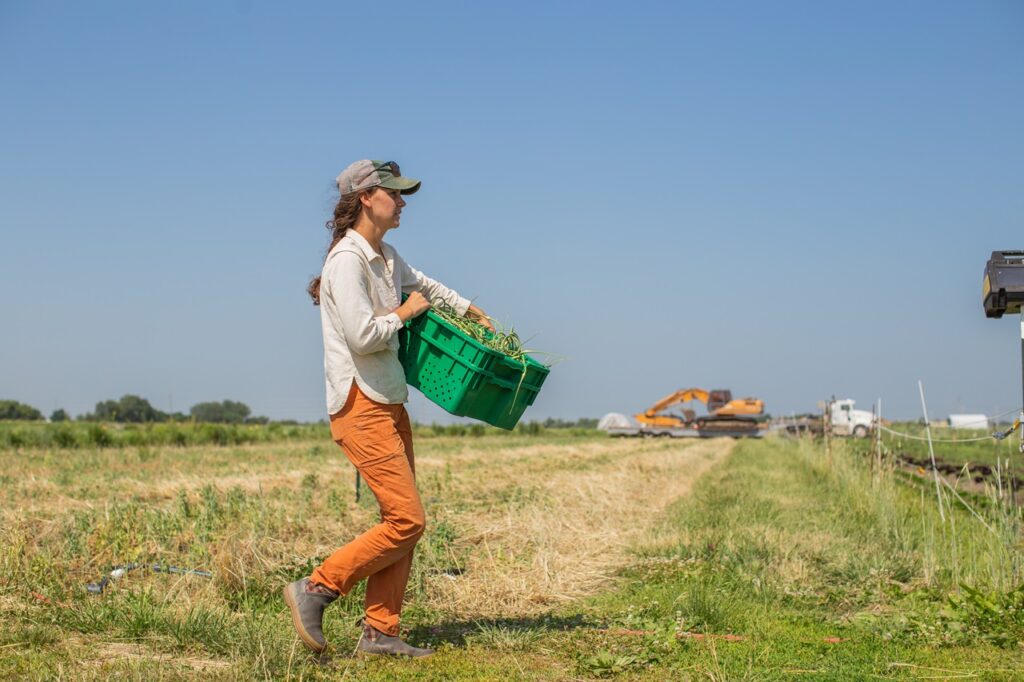Real Success: Mike and Nate Dunn with F&M Bank
Nate Kaeding

Farm Coordinator Sarah Nelson harvest-garlic scapes. CREDIT PJ PASTURCZAK PHOTOGRAPHY
2023 wasn’t exactly a banner year for agriculture – Iowa saw its third year of drought conditions spread over the state. Despite the challenges seen by farmers and producers, local food nonprofits experienced significant growth this year. Grow: Johnson County (Grow) hit a milestone by producing 40,000 pounds of fresh produce on six acres, the largest harvest of its history – 10,000…

Get immediate, unlimited access to all subscriber content and much more.
Learn more in our subscriber FAQ.
Do you want to read and share this article without a paywall?
